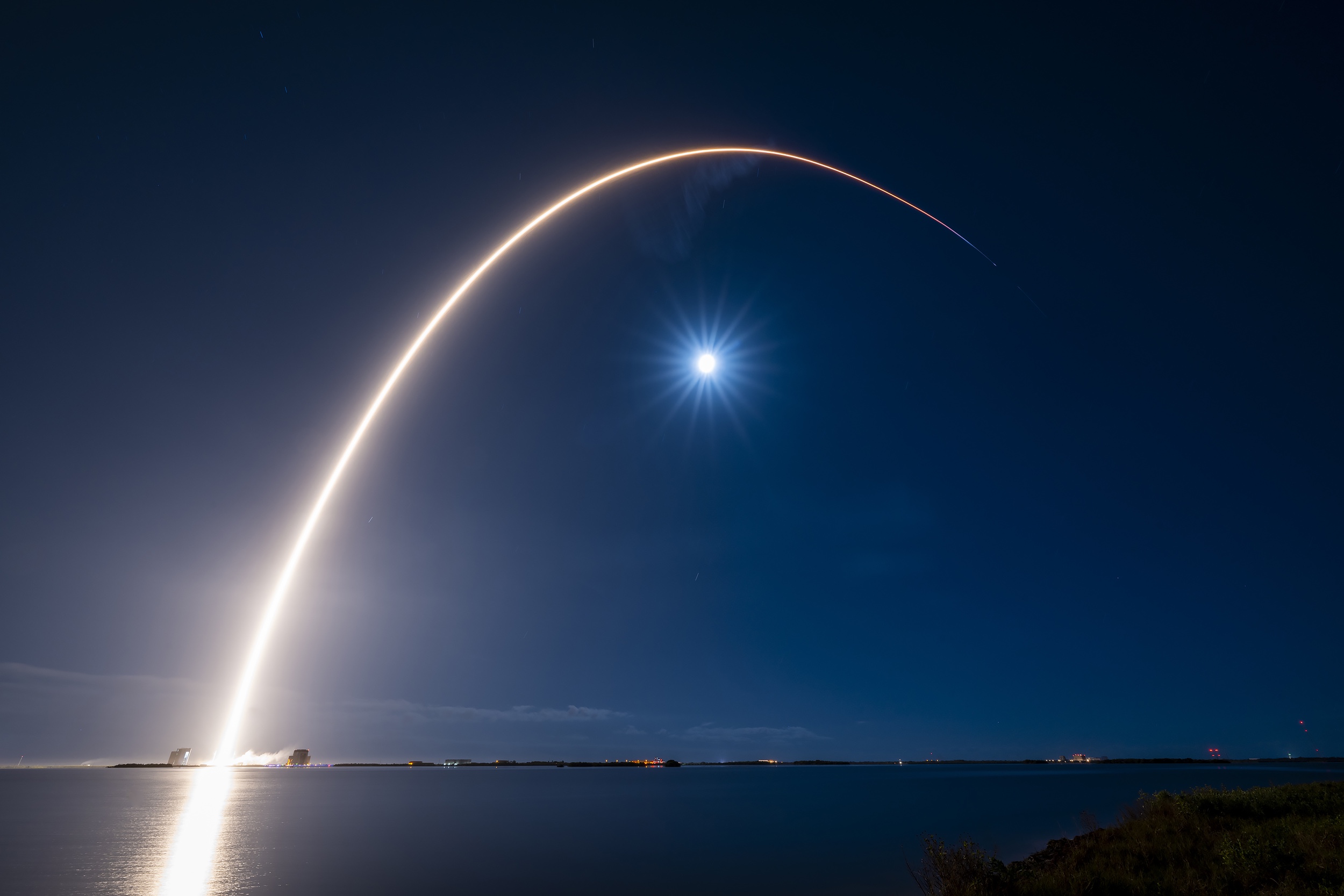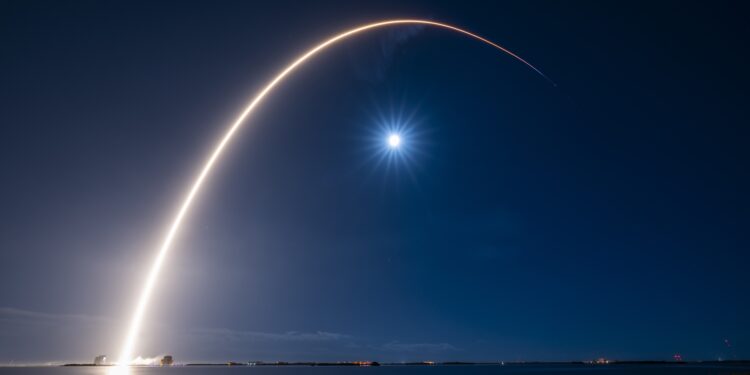
WASHINGTON — The Federal Aviation Administration will temporarily limit the hours that commercial space launches can take place, citing strains on the air traffic control system during the government shutdown.
In an order issued Nov. 6, the FAA said it will restrict commercial launches to between 10 p.m. and 6 a.m. local time. That curfew will take effect at 6 a.m. Eastern Nov. 10.
The restriction is part of “other operational reductions” on the National Airspace System included in the order, which was primarily focused on reducing the number of commercial flights at 40 major airports around the country by up to 10% to reduce strains on the air traffic control system.
Controllers have not been paid since the early October because of the government shutdown, causing an increase in absenteeism. That has put a strain on the overall system, creating in some cases hours-long delays for commercial flights.
“While current mitigations have managed risk, delays are increasing, and additional mitigations are now necessary,” the FAA stated in its order. “With continued delays and unpredictable staffing shortages, which are driving fatigue, risk is further increasing, and the FAA is concerned with the system’s ability to maintain the current volume of operations.”
The new limits on when commercial launches can take place, which has no recent precedent, may have only a limited impact on commercial launches. The first launch that would be affected by it is a Falcon 9 launch of Starlink satellites scheduled for between 5:12 and 9:12 p.m. Eastern Nov. 10 from Cape Canaveral.
Three other Falcon 9 launches are scheduled in the next week that could also be affected by the order. They include a Transporter-15 rideshare mission planned to launch from Vandenberg Space Force Base in California at 1:18 p.m. Eastern and two additional Starlink missions from Florida Nov. 13 and 14.
The timing of the order will still allow Blue Origin to attempt its second New Glenn launch on the afternoon of Nov. 9 from Cape Canaveral. However, if that launch slips, it would be unable to fly until the order is lifted.
United Launch Alliance has not announced a new date for the Atlas 5 launch of the ViaSat-3 F2 satellite from the Cape after valve problems scrubbed launch attempts Nov. 5 and 6. Those launches, though, were scheduled for after 10 p.m. Eastern, which means the mission may be able to proceed, although potentially with a shorter launch window, if there is not an extended delay.
The order does give the FAA the flexibility to modify or remove provisions at the request of an operator. “Once funding is restored and the FAA has confidence the stress in the system has adequately decreased, the FAA expects to roll back operational restrictions required by this order to restore normal operations,” the FAA stated in the order.
